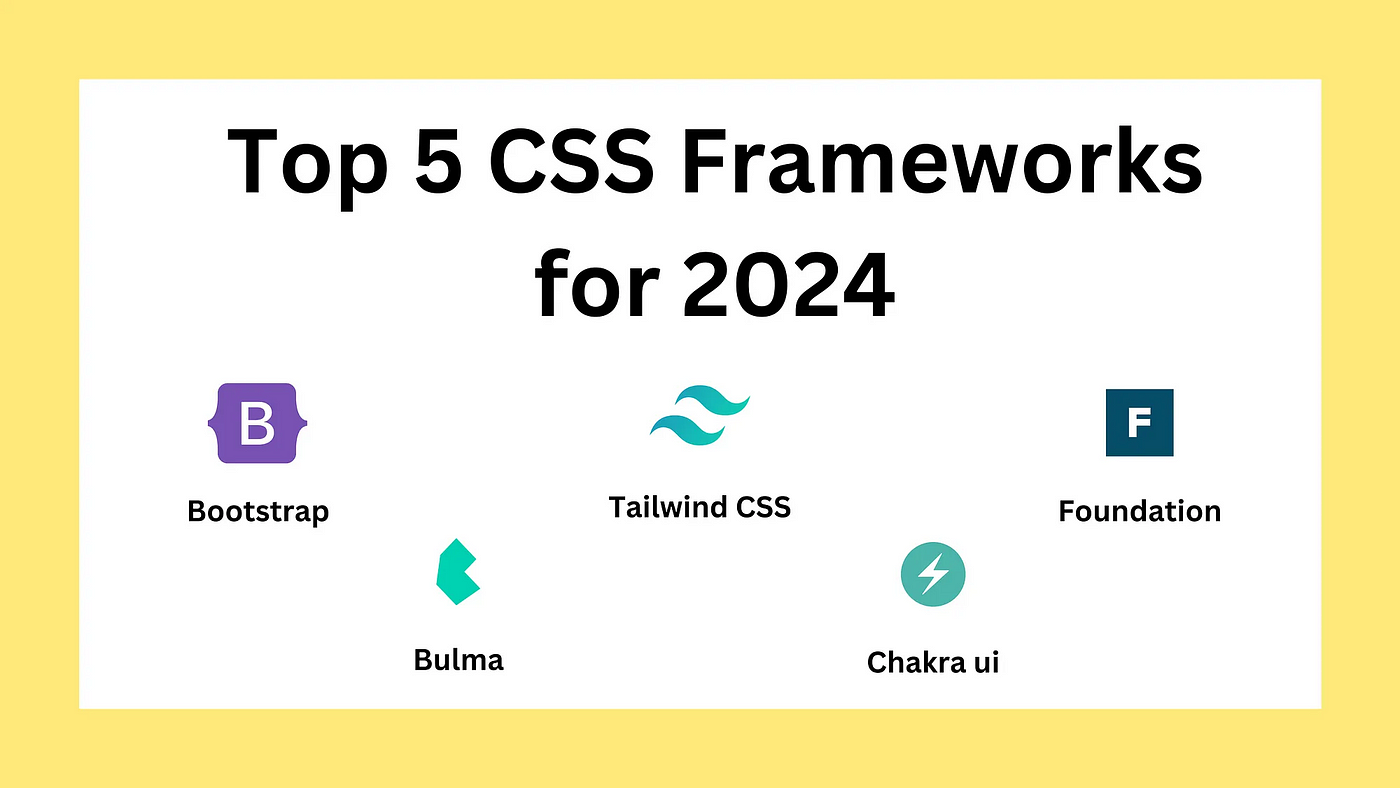Buzz Haven: Your Daily Dose of News
Stay informed and entertained with the latest buzz in news, trends, and insights.
CSS Frameworks: The Stylish Shortcut You Didn't Know You Needed
Discover the game-changing CSS frameworks that will elevate your web design effortlessly. Unlock style shortcuts you didn't know existed!
Top 5 CSS Frameworks to Streamline Your Web Design
Choosing the right CSS framework can make a significant difference in your web design process. In this article, we will highlight the Top 5 CSS Frameworks that can streamline your workflow and enhance the responsiveness of your website. These frameworks come with pre-defined styles, components, and utilities that save time and effort while allowing you to focus on creating a unique user experience. Here’s a quick rundown:
- Bootstrap - The most popular CSS framework known for its versatility and responsive grid system.
- Tailwind CSS - A utility-first framework that promotes customization and efficiency in design.
- Foundation - Developed by ZURB, it offers advanced features and accessibility options.
- Bulma - A modern CSS framework based on Flexbox, it is easy to learn and use.
- Semantic UI - This framework uses human-friendly HTML, making it easier to read and understand.
By using one of these frameworks, you can rapidly prototype your designs and ensure a consistent look and feel across your project, allowing you to deliver high-quality web applications with minimal effort.

Why You Should Consider Adopting a CSS Framework Today
In today's fast-paced web development landscape, adopting a CSS framework can significantly streamline your workflow and enhance your website's design efficiency. CSS frameworks, such as Bootstrap or Tailwind CSS, provide a solid foundation with pre-defined styles and components, allowing developers to focus on creating functionality without getting bogged down by syntax. Additionally, these frameworks promote responsiveness, ensuring that your site looks great on any device, which is crucial for user experience and SEO rankings.
Moreover, by leveraging a CSS framework, you can ensure faster load times and cleaner code. Most frameworks come equipped with optimized styles and best practices, which can help reduce unnecessary bloat and improve your site's performance. Consider this: using a framework not only reduces development time but also allows for easy collaboration among teams, as more developers become familiar with common structures. In a competitive digital environment, adopting a CSS framework today can provide you with the tools needed to create stunning, high-performing websites that captivate visitors and leave a lasting impression.
How CSS Frameworks Can Boost Your Productivity and Style
CSS frameworks are powerful tools that can significantly boost your productivity as a web developer. By providing a set of pre-designed styles and components, frameworks like Bootstrap or Tailwind CSS allow you to create responsive and aesthetically pleasing websites without starting from scratch. This not only saves you time but also streamlines the development process, enabling you to focus on other crucial aspects of your project such as functionality and user experience.
In addition to enhancing productivity, CSS frameworks also ensure consistency and adherence to best practices across your projects. With built-in guidelines and grids, they help maintain a cohesive design aesthetic, which is essential for brand identity. Utilizing a framework means you have access to a wide array of reusable components like buttons, forms, and navigation bars, which can be easily customized to match your style, ultimately elevating the visual appeal of your website.